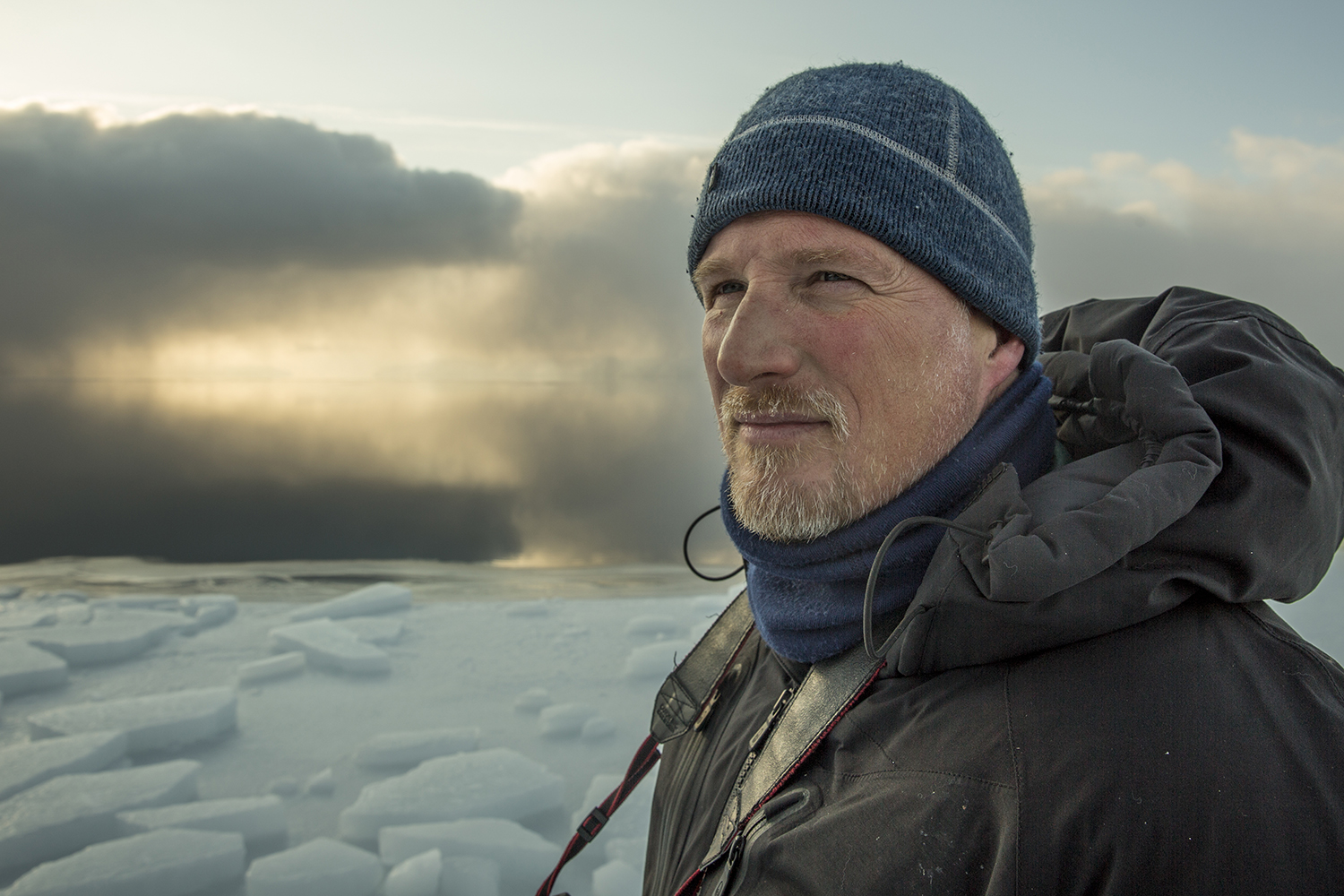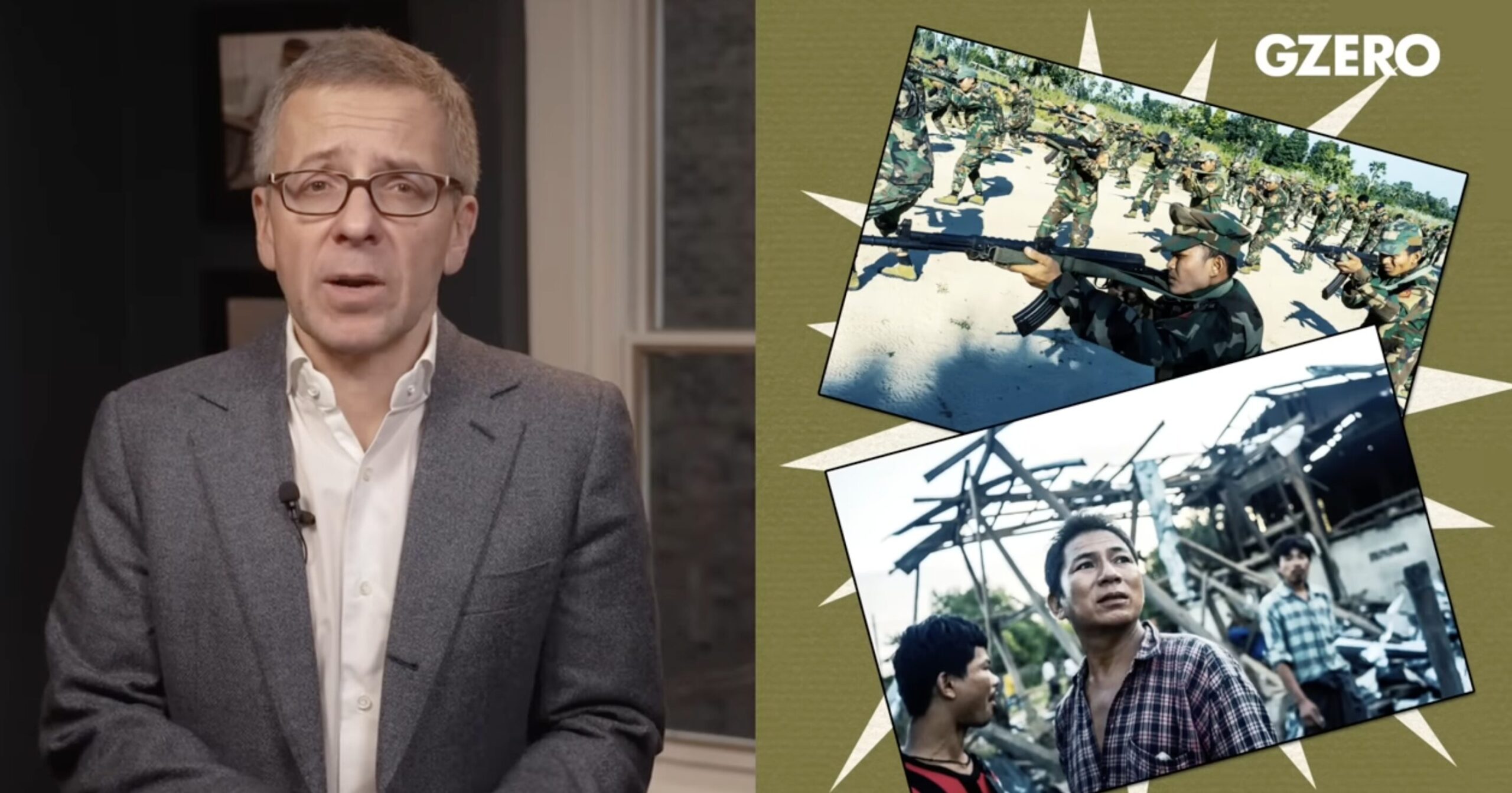
Peter Zeihan: Europe Goes Nuclear
We’ve got two major developments in Eurasia. We’re talking about Ukraine disabling two ships in the Caspian Sea and Poland getting EU approval to build…
Thought Leader: Peter Zeihan

(National Geographic) – When photographer Paul Nicklen and filmmakers from conservation group Sea Legacy arrived on Baffin Island in late summer, they came across a heartbreaking sight: a starving polar bear on its deathbed.
Nicklen is no stranger to bears. From the time he was a child growing up in Canada’s far north the biologist turned wildlife photographer has seen over 3,000 bears in the wild. But the emaciated polar bear, featured in videos Nicklen published to social media on December 5, was one of the most gut-wrenching sights he’s ever seen.
“We stood there crying—filming with tears rolling down our cheeks,” he said.
Video shows the polar bear clinging to life, its white hair limply covering its thin, bony frame. One of the bear’s back legs drags behind it as it walks, likely due to muscle atrophy. Looking for food, the polar bear slowly rummages through a nearby trashcan used seasonally by Inuit fishers. It finds nothing and resignedly collapses back down onto the ground.
In the days since Nicklen posted the footage, he’s been asked why he didn’t intervene.
“Of course, that crossed my mind,” said Nicklen. “But it’s not like I walk around with a tranquilizer gun or 400 pounds of seal meat.”
And even if he did, said Nicklen, he only would have been prolonging the bear’s misery. Plus, feeding wild polar bears is illegal in Canada.
The wildlife photographer says he filmed the bear’s slow, beleaguered death because he didn’t want it to die in vain.
“When scientists say bears are going extinct, I want people to realize what it looks like. Bears are going to starve to death,” said Nicklen. “This is what a starving bear looks like.”
By telling the story of one polar bear, Nicklen hopes to convey a larger message about how a warming climate has deadly consequences.
Polar bears have long been unwitting mascots for the effects of climate change. As animals that live only in Arctic regions, they’re often the first to feel the impacts of warming temperatures and rising seas.
The large, half-ton bears find concentrations of seals on sea ice. During summer months, it’s not uncommon for polar bears to go months without eating while they wait for Arctic ice to solidify.
In 2002, a World Wildlife Fund report predicted that climate change could eventually lead to polar bear endangerment or extinction. Even then, the report found that polar bears were moving from ice to land earlier and staying on land longer, unhealthily extending the bears’ fasting season. By the end of summer, most bears studied by the World Wildlife Fund showed signs of starvation.
Fifteen years later, polar bears’ icy hunting grounds are in even worse shape. The National Snow and Ice Data Center, which tracks sea ice cover annually, has regularly noted record lows in sea ice coverage—a decline that is expected to only get worse.
A study recently published in the journal Biosciences looked at how climate science is often falsely discredited. The study found climate deniers are able to downplay the threat of climate change by discrediting the threat facing polar bears.
However, a study published last year by the European Geosciences Unionand this year by the U.S. Geological Survey confirms melting sea ice continues to be an existential threat to polar bears.
Peter Zeihan: Europe Goes Nuclear
We’ve got two major developments in Eurasia. We’re talking about Ukraine disabling two ships in the Caspian Sea and Poland getting EU approval to build…
Thought Leader: Peter Zeihan
Dr. Sanjay Gupta’s Top Health Stories of 2025
From the resurgence of measles to a new way to treat pain, 2025 was a challenge for public health while still offering moments of hope. Sanjay…
Thought Leader: Sanjay Gupta
Ian Bremmer: The state of global conflict in 2025
On GZERO World, Ian Bremmer takes a hard look at the biggest global crises and conflicts that defined our world in 2025 with CNN’s Clarissa…
Thought Leader: Ian Bremmer

